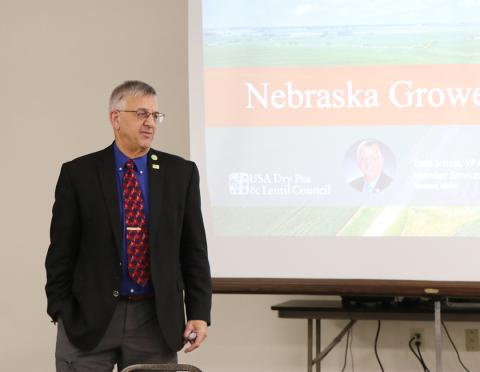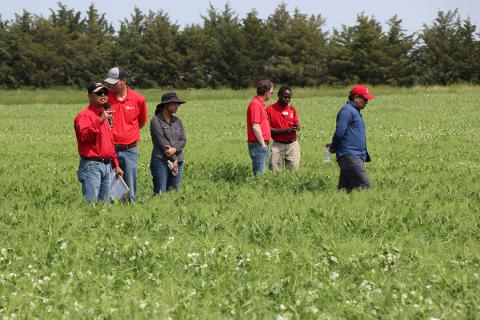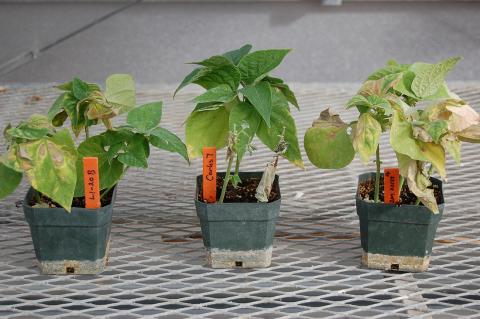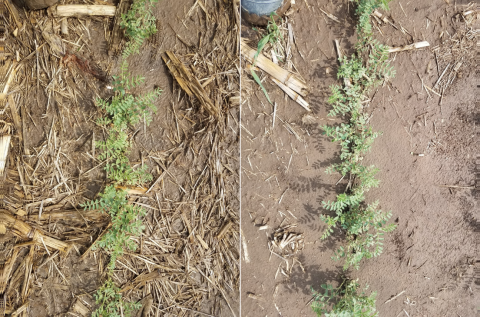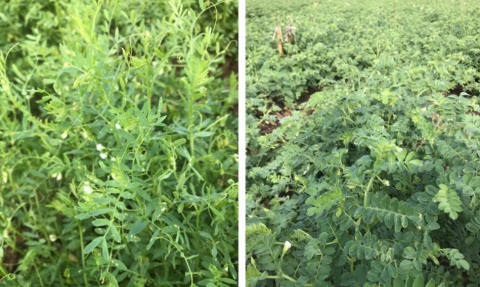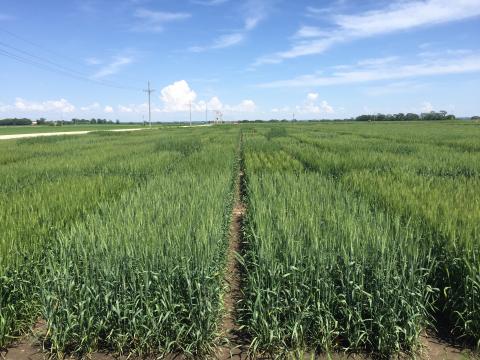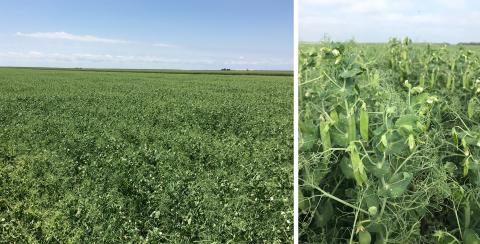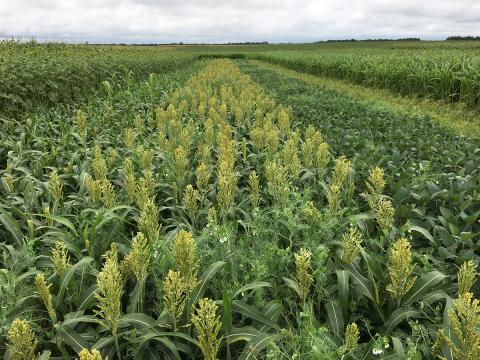Nebraska Pulse Crop Conference Reviewed Crop Insurance and Policy
December 15, 2023
USDA recently announced its expanded revenue protection for dry pea production in Nebraska, which is set to begin with the 2024 crop year.
Nebraska Pulse Crops Conference Scheduled at Two Locations
September 19, 2023
The conference will cover a wide range of agronomic topics for field peas, chickpeas, black-eyed peas and other pulses, including management of nutrients and diseases, genetics, crop insurance, policy and more.
Identifying and Characterizing Bacterial Isolates from the Stratosphere
May 4, 2023
Panhandle researchers were recently awarded USDA specialty crop block grants to study new copper alternative chemical products on fungal and bacterial diseases of dry beans, cowpeas, chickpeas and dry peas.
Field Pea and Chickpea Germination and Yield as Affected by Tillage
October 17, 2019
Research conducted with field peas and chickpeas near Grant found that yield increased slightly with the use of tillage; however, tillage was not recommended for dryland and semi-arid conditions.
Results from the Nebraska Pulse Crops Checkoff Survey
September 26, 2019
Should a Pulse Crops Checkoff be established in Nebraska and, if so, how should it be structured. This report looks at the results of a survey on the topic issued earlier this year to pulse crop growers.
Eastern Nebraska Wheat, Pulse and Double Crop Field Day June 18
June 7, 2019
Variety trials and field research will be in the spotlight June 18 at the Eastern Nebraska Wheat, Pulse, and Double Crop Field Day at the Eastern Nebraska Research and Education Center near Mead.
Nebraska Pulse Crops Expo Jan. 7 in Kearney
December 11, 2018
To learn about getting started with pulse crops or how to enhance your existing pulse production, don’t miss the 2019 Nebraska Pulse Crops Expo January 7 in Kearney. The program is free but registrations are needed by Jan. 2.
Double Cropping Pulses with Short-Season Crops, Forages, and Cover Crops in Eastern Nebraska
September 6, 2018
A research project in eastern Nebraska is evaluating a double crop production system as a potential alternative to the traditional corn/soybean rotation. Following an early season crop of yellow field peas, short-season crops (corn, soybean, grain sorghum, millet and sunflower) and annual forages (forage sorghum and sorghum-Sudangrass) were planted.
